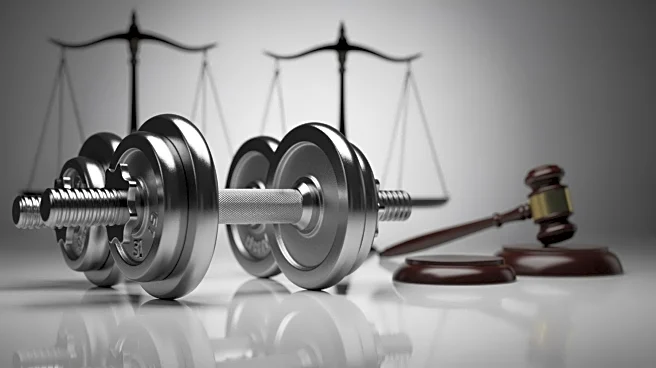What's Happening?
The Minnesota Supreme Court is poised to deliver a significant ruling in a discrimination case involving a transgender powerlifter. This decision is anticipated to have substantial implications for transgender athletes
throughout Minnesota. The case centers around allegations of discrimination against the powerlifter, who claims unfair treatment based on gender identity. The court's decision will address whether current policies adequately protect transgender athletes from discrimination in sports. This case has garnered attention as it challenges existing norms and seeks to establish clearer guidelines for inclusivity in athletics.
Why It's Important?
The outcome of this case is crucial as it could redefine the landscape for transgender athletes in Minnesota, potentially influencing policies at both state and national levels. A ruling in favor of the powerlifter may lead to increased protections and support for transgender individuals in sports, promoting inclusivity and equality. Conversely, a decision against the powerlifter could reinforce existing barriers and discrimination, impacting the participation and rights of transgender athletes. This case highlights ongoing debates about gender identity, fairness, and the need for comprehensive anti-discrimination policies in sports.
What's Next?
Following the court's decision, stakeholders including sports organizations, advocacy groups, and policymakers will likely respond with actions to align with the ruling. If the court rules in favor of the powerlifter, sports bodies may need to revise their policies to ensure compliance with anti-discrimination standards. Advocacy groups may push for broader legislative changes to protect transgender athletes. Conversely, if the ruling is not favorable, there may be calls for further legal challenges or legislative efforts to address perceived gaps in protection for transgender individuals in sports.
Beyond the Headlines
This case underscores the broader societal and cultural shifts regarding gender identity and inclusivity. It raises ethical questions about fairness in competitive sports and the balance between traditional gender norms and evolving understandings of gender identity. The decision could influence public discourse and awareness about transgender rights, potentially leading to increased advocacy and support for marginalized communities.









